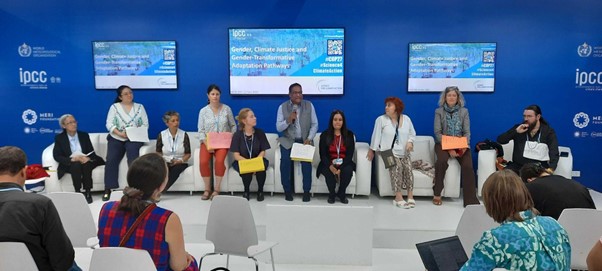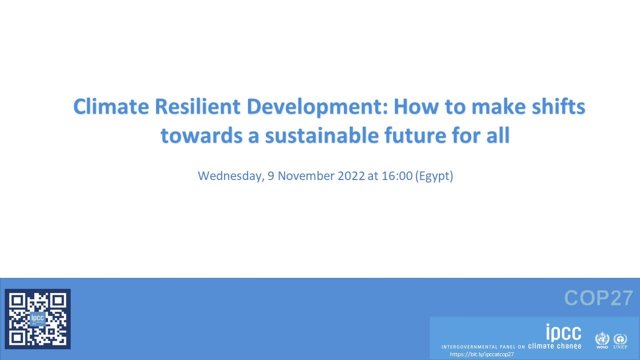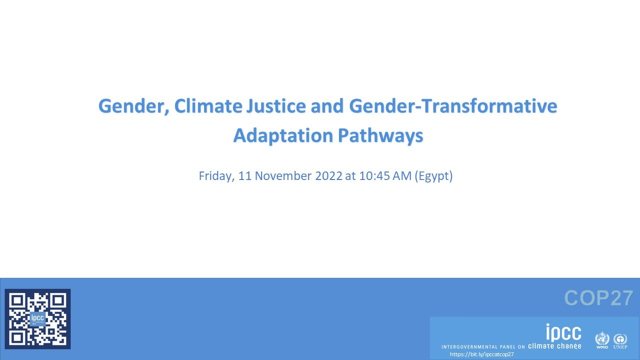This year, the Conference of the Parties of the UNFCCC (COP27) has taken place in Sharm El-Sheikh, Egypt. The COP27 was a great opportunity for all stakeholders involved in the challenge of tackling climate change to meet and discuss multilateral and collective actions to address this truly global threat. COP27 was called the “implementation COP” and transported high hopes for major steps forward in implementing the Paris Agreement and preparing for the First Global Stocktake of the Paris Agreement, due in 2023, and the related Global Goal on Adaptation.
Diana Reckien, member of the IPCC AR6 — the Sixth Assessment Report of the Intergovernmental Panel on Climate Change, and Associate Professor of University of Twente (UT) - and a LOCALISED partner - participated in the conference as part of the IPCC WGII Author team – delivering the latest information of the impacts, adaptation, and vulnerability to climate change.
Climate Resilient Development
Diana was involved in sessions that discussed the multidimensionality of our needed societal responses, including adaptation, mitigation, and sustainable development – something called Climate Resilient Development in the latest IPCC AR6 WGII report.
Why gender matters for climate change
Diana was also part of an event highlighting the importance of gender aspects to be considered in all our responses to climate change – an event that culminated in a role play on the gender sensitivity of climate impacts and adaptation approaches.

Localised
The event was also a good occasion to create awareness about the LOCALISED project and its activities–very much working on the implementation of a holistic Climate Resilient Development approach in responding to climate change. LOCALISED is an EU-funded research project which is providing downscaled national decarbonisation trajectories, and thereby helps to upscale the definition and implementation of mitigation and adaptation measures from the local level. The project pulls together a multidisciplinary consortium including experienced institutions in the science of multi-sectoral energy transition, economic analysis, urban adaptation, and climate impacts, policy consultants, and citizen engagement and communication experts.
More recent news
 Thu 19 Feb 2026Project SEEN‑ATLAS Receives European Funding
Thu 19 Feb 2026Project SEEN‑ATLAS Receives European Funding Wed 18 Feb 2026Master's in Geo-information Science and Earth Observation recognised as an initial Master's
Wed 18 Feb 2026Master's in Geo-information Science and Earth Observation recognised as an initial Master's Wed 18 Feb 2026Prototype 'digital twin' helps Enschede better predict groundwater
Wed 18 Feb 2026Prototype 'digital twin' helps Enschede better predict groundwater Thu 12 Feb 2026Calisto Omondi 500th PhD graduate
Thu 12 Feb 2026Calisto Omondi 500th PhD graduate Tue 10 Feb 2026IPBES report: businesses cannot survive without nature
Tue 10 Feb 2026IPBES report: businesses cannot survive without nature




